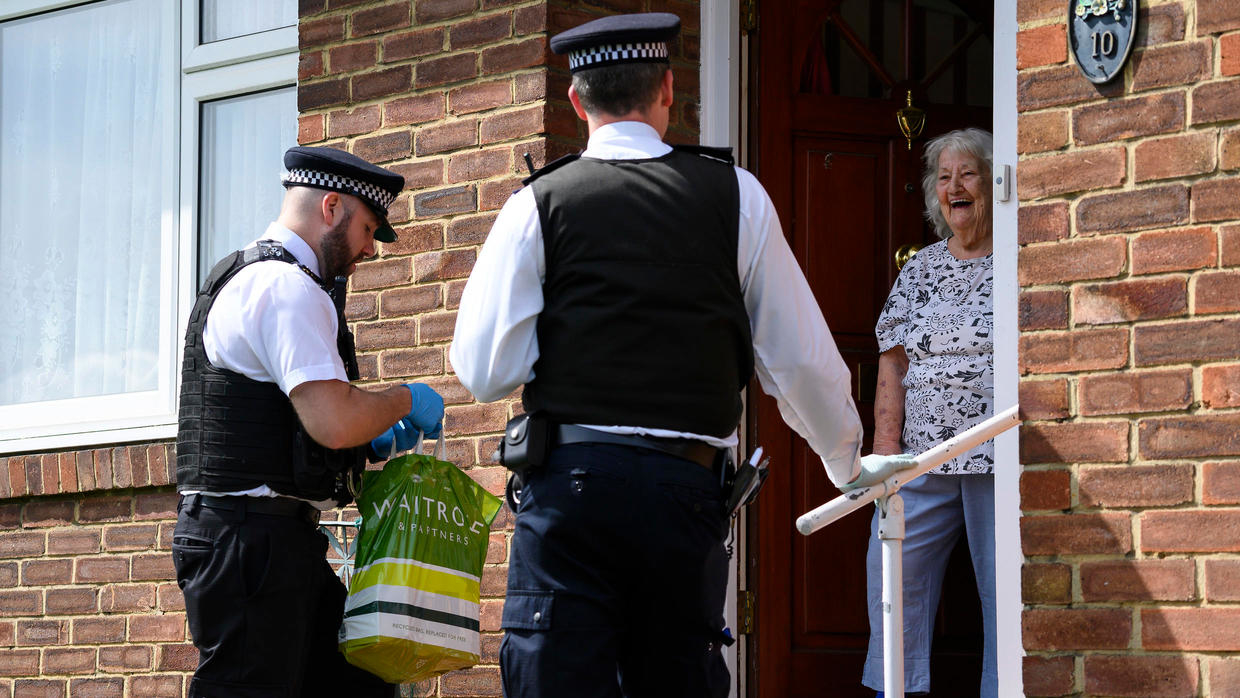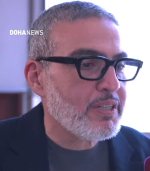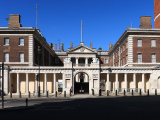
In the suburbs of south London, police are paying special visits to vulnerable elderly and isolated people in the community at risk from scams and loneliness during the coronavirus pandemic.
This morning, uniformed and gloved officers Simon Hardwick and Liam Hack spend ten minutes talking to Gwendalyn Iles on the doorstep of her red brick house, being mindful to stay three meters away.
The 94-year-old stoic resident of Croydon, south London, says the outbreak "doesn't really bother me". She still goes out occasionally to do her shopping.
The cop duo have spent the past few weeks roaming the area's streets in a vehicle specially chartered for the scheme, called Operation Nogi, talking to vulnerable people like Iles.
"It (has) served a purpose to prevent them from becoming victims or further victims of crime, to provide them with some reassurance," said Hack.
He added their interactions with some people were the first that the residents had had since a nationwide coronavirus lockdown was introduced in late March.
"So I think it's incredibly important that now, more than ever, we're getting out and meeting these people."
- Scammer 'samaritan' -
Later in the same morning, the duo get further evidence of the operation's necessity.
They meet Sidney Alder, 91, tending to his flower garden, and hear he has recently been robbed of £260 ($325, 300 euros) by a scammer posing as a good Samaritan.
The fraudster had offered to buy Alder his medicine so he did not have to go out, but never returned once he had the elderly man's credit card.
The idea for "Operation Nogi" actually predated the outbreak, thought up by an eager inspector who wanted to do more to help the elderly in the community.
So in August last year, London's Metropolitan Police launched the operation locally, deploying two uniformed officers and a welfare car to carry out reassurance visits to the elderly and isolated.
It also began working with other agencies and bodies, such as trading standards officials and adult social carers, to ensure a joined-up approach.
But since the arrival of COVID-19 the operation has morphed to include officers delivering food and household essentials donated by local supermarkets which joined the scheme.
But the virus has also meant visits have had to change, with officers now staying a maximum of 15 minutes due to increased demand, keeping their distance and wearing personal protective equipment like gloves and masks.
"I'm really proud of the positive impact this initiative is having on helping the most vulnerable, elderly and isolated people in our communities during such a challenging time," Chief Inspector Luke Mooney, a local commander, said last month.afp




































